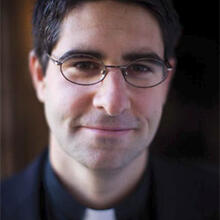In the October 20, 1928 issue of America, the editors of the magazine inaugurated the Catholic Book Club with the following notice:
[T]he Catholic Book announces that it has selected “The Way It Was with Them” by Peadar O’Donnell, as the outstanding Catholic novel of the month. This book is praised by non-Catholic critics, both in the United States and abroad, as one of the distinguished novels of the season. The approval of these critics, however, is of little moment for Catholic readers, since their praise is showered, more often than not, on novels that are gravely objectionable. The decision of the Editorial Board of the Catholic Book Club is of greater authority. For it stamps the book chosen as one which is Catholic in its attitude and moral in its recital, no less than skillful in its technique and graceful in its style.
The announcement proceeds to offer a rationale for the Book Club’s work of publicizing Catholic works for the “Catholic reading public”:
[T]he fact is all too evident that even the best Catholic books have not received adequate notice and have not been read or bought except by the smallest fraction of a percent of the Catholic reading class…Through the ministry of the Catholic Book Club, it is confidently expected that the Catholic author may be encouraged to devote his talents to subjects that are of Catholic interest and that he may likewise strive to endow his work with the living beauty which is essential to good literature.
The tone of the 1928 announcement is quite similar to the assertive tone James Keane recently identified in the architecture of Catholic institutions anchored in the Hudson River Valley (“Statements in Stone,” 2/18/13). The stone buildings that Keane described exude a confidence in the mystical permanence and riches of Catholic Culture as its adherents tried to gain a foothold in the United States during the first half of the twentieth century. Likewise, the Catholic Book Club sought to establish a following for works of Catholic literature—works that promoted the awareness of the riches of the faith and its cultural heritage among Catholics. The Book Club’s board established itself as a greater authority than secular critics as to what works of literature were worthy of the attention of readers.
In the last 85 years there has been great change—to understate an understatement. However, in the reestablishment of the Catholic Book Club, I want to assert a similar confidence in the Catholic faith and the riches of Catholic culture and intellectual tradition. Yet, I wish to anchor this confidence in a resolute openness to the tremendous diversity within the Catholic tradition as well as a resolute respect for the breathtaking complexity of the human person, culture and religion. I see such regard for the complexity of human life to be as well-grounded and orthodox as Thomas Aquinas’s principle of plenitude: the sum total of the diversity of goodness and beauty in the entirety of creation reflects, to some extent, the goodness of its Creator.
Narrative, history, biography, theology, poetry, essay and argument—when these pursuits are honest and artful—serve to underscore the goodness of God and humanity. Nevertheless, such honest accounts of the complexity of human life will necessarily consider the “gravely objectionable,” because it is in the gravely objectionable that we see the need of men and women for a Savior—the person at the center of the Christian faith. This is also evident in Thomas’s principle of plenitude as it includes every degree of goodness, from the slightly imperfect to the obscenely human. And so, I hope to share with you works of history and literature and religious thought that serve to deepen our faith and our awareness of the complexity of human life. By reading together, we can communally consider the works of thinkers that will serve to deepen our relationship with Christ and our neighbors. Such works will help us learn about the world around us and, perhaps, help us to be more honest about ourselves and the faith we confess.
Here are the books we have highlighted so far this year:
March
The Patriarch: The Remarkable Life and Turbulent Times of Joseph P. Kennedyby David Nasaw
Kevin Spinale, S.J., spoke with David Nasaw on this podcast.
April
The Pope's Last Crusade: How an American Jesuit Helped Pope Pius XI's Campaign to Stop Hitler by Peter Eisner
Peter Eisner speaks with Kevin Spinale, S.J. on this podcast.
May
The Tenth of December by George Saunders
Kevin Spinale, S.J., interviews Saunders by email.
June
The Violent Bear it Away by Flannery O'Connor
Kevin Spinale, S.J., talks with Paul Elie, the author of The Life You Save May Be Your Own, about O'Connor's last novel.
July-August
Francis of Assisi by André Vauchez
Kevins Spinale, S.J, interviews Father Michael Cusato, the book's translator.
September
Herbert McCabe: Faith Within Reason
October
Enon: A Novel by Paul Harding
Start Your Own Catholic Book Club
Interested in operating a local chapter of the Catholic Book Club? Contact me at frspinal@bc.edu for help and details.







